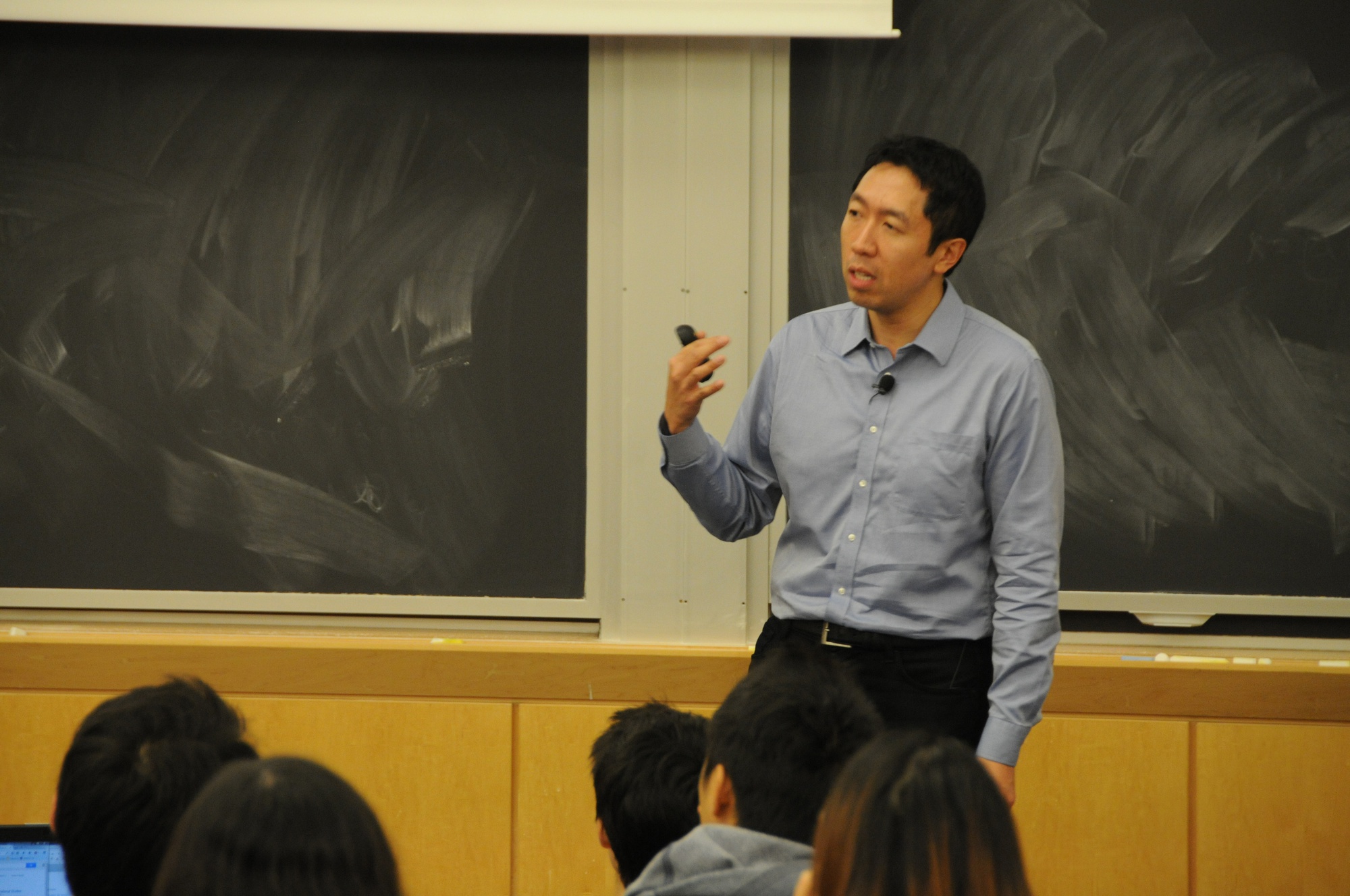
News
Summers Will Not Finish Semester of Teaching as Harvard Investigates Epstein Ties

News
Harvard College Students Report Favoring Divestment from Israel in HUA Survey

News
‘He Should Resign’: Harvard Undergrads Take Hard Line Against Summers Over Epstein Scandal

News
Harvard To Launch New Investigation Into Epstein’s Ties to Summers, Other University Affiliates

News
Harvard Students To Vote on Divestment From Israel in Inaugural HUA Election Survey
Coursera Co-Founder Promotes 'Deep Learning' at SEAS

UPDATED: September 26, 2014, at 2:52 a.m.
Coursera co-Founder Andrew Y. Ng spoke at the School of Engineering and Applied Sciences Thursday afternoon about “deep learning," a new set of algorithms that he said have the potential to dramatically enhance artificial intelligence technologies.

Deep learning, a subfield of computer science, is currently being developed by computer scientists to handle massive amounts of information and data, which can be applied to speech and image recognition.
Ng, who is also the chief scientist at the Chinese search engine Baidu and an associate professor of computer science at Stanford University, said that the main goal of his presentation was to “share with [the audience] some strategic views about deep learning and give [them] some general ideas about whether to work on deep learning in the future.”
Ng used a “coffee mug” analogy throughout the presentation to illustrate his ideas. He explained that, with a traditional method, scientists have to teach a computer to recognize a coffee mug by exposing it to thousands of coffee mugs, creating a database of information Ng called “labeled data." But deep learning allows computers to recognize data on their own.
According to Ng, a traditional data mining method that requires labeled data is now impractical given the vast amount of information that computers process today. He added that deep learning allows computers to act like infants and animals, who learn on their own how to recognize objects.
Accordingly, Ng said, deep learning could have significant implications on speech and image recognition.
The talk attracted both experts and newcomers to deep learning, according to audience members interviewed after the event. Two visiting scholars said that they knew nothing about the field before hearing Ng speak, but others said they had a previous interest in the field.
“I want to work in deep learning in the future, and I knew most of the material before I came here, so I did not get a lot out of it. I am here to talk to Ng,” said Borui Wang ’15, a computer science concentrator.
Kanya “Pao” Siangliulue, a fourth year graduate student at SEAS and one of the few female students at the event, said she was inspired by the presentation.
“I studied human-computer interaction, and I did not know very much about deep learning. But Ng’s lecture was very interesting and I wish to learn more about this field,” Siangliulie said.
Want to keep up with breaking news? Subscribe to our email newsletter.
